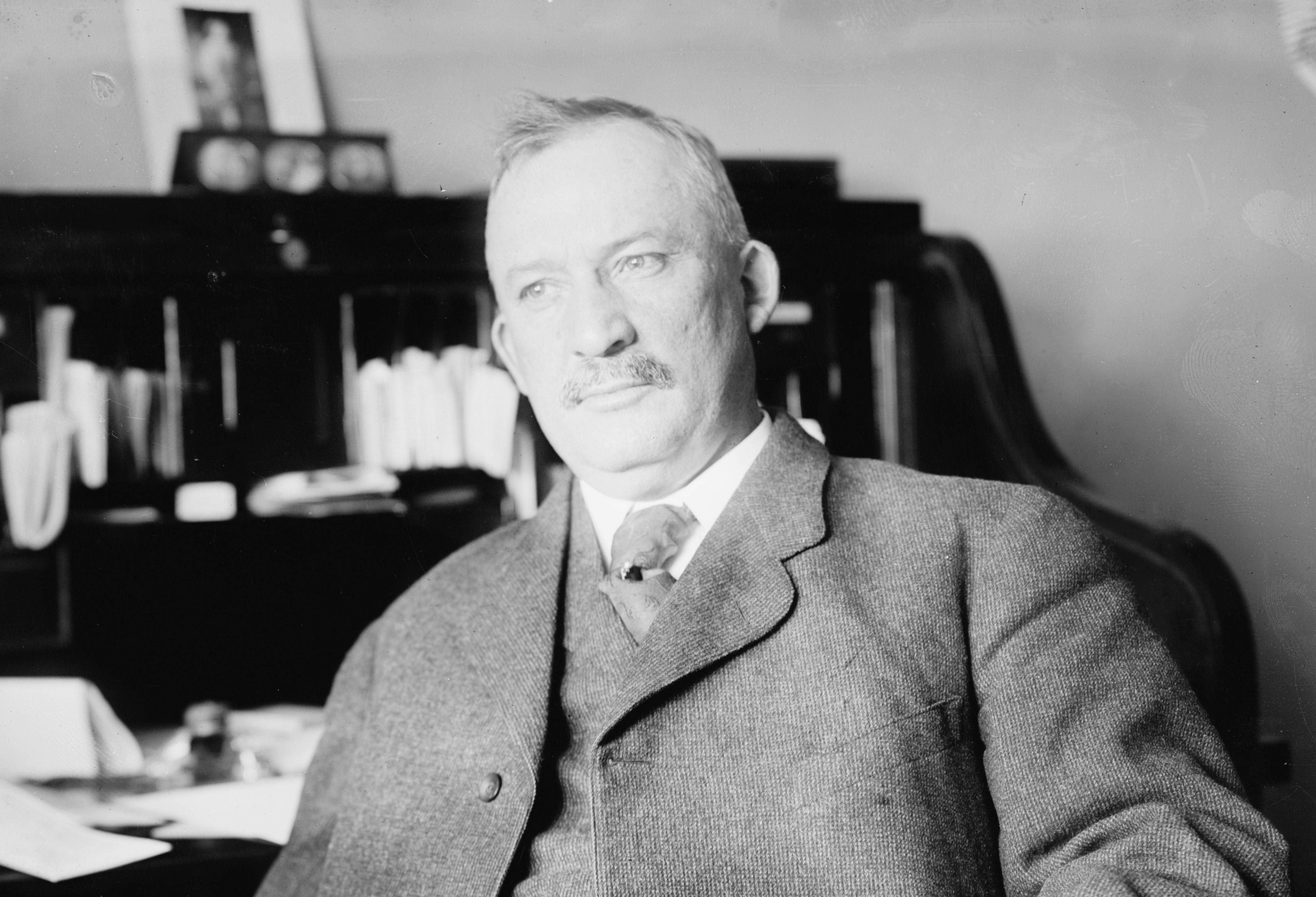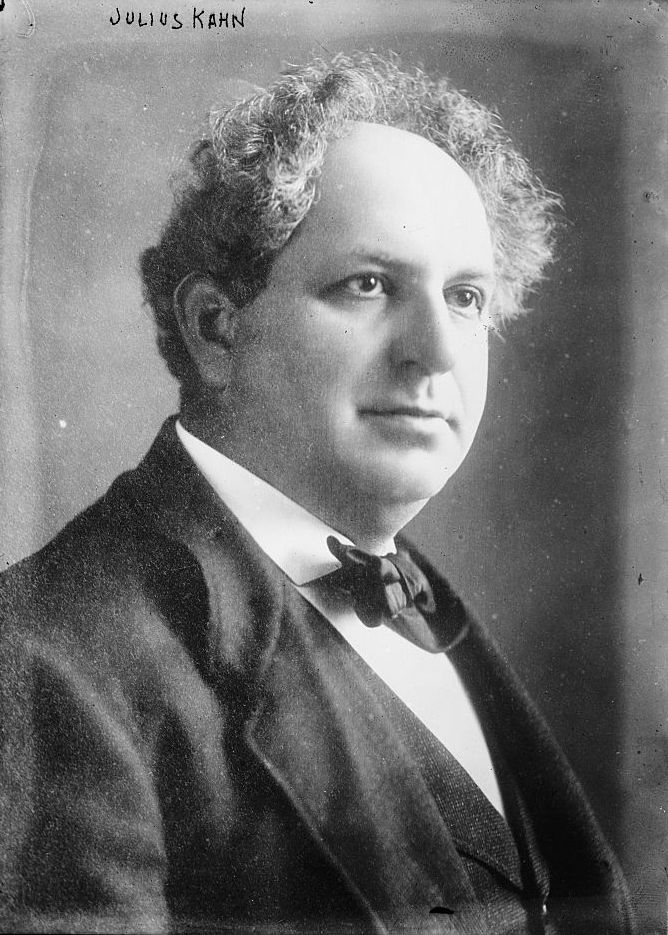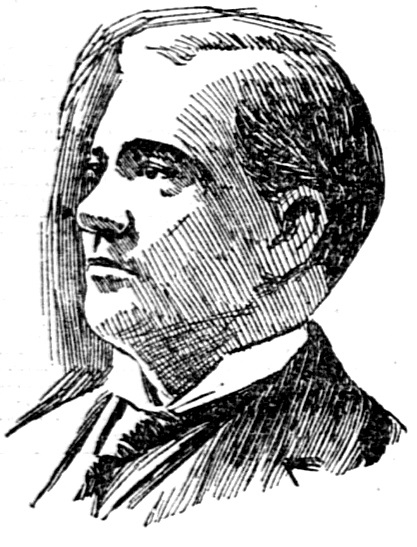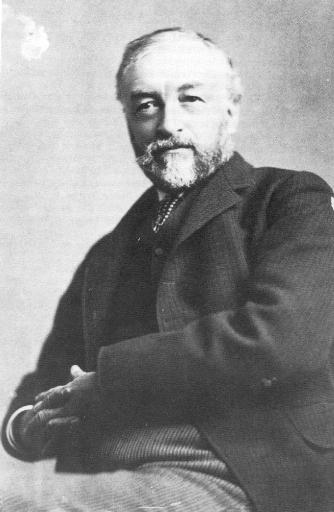National Defense Act of 1916 on:
[Wikipedia]
[Google]
[Amazon]
 The National Defense Act of 1916, , was a
The National Defense Act of 1916, , was a
 The act was passed amidst the " preparedness controversy", after Pancho Villa's cross-border raid on
The act was passed amidst the " preparedness controversy", after Pancho Villa's cross-border raid on
 The provision to establish the
The provision to establish the
 The 1916 Act also authorized the National Guard to use federal funds to pay for 48 days of drill a year, as well as 15 days of annual training, an improvement over the previous authorization of five days of summer camp, with no federal funds for drills.
The new law also made the Army's Division of Militia Affairs the expanded and reorganized
The 1916 Act also authorized the National Guard to use federal funds to pay for 48 days of drill a year, as well as 15 days of annual training, an improvement over the previous authorization of five days of summer camp, with no federal funds for drills.
The new law also made the Army's Division of Militia Affairs the expanded and reorganized
 The 1916 Act also allocated over $17 million for the Army to field 375 new airplanes, and created the Air Division to administer the
The 1916 Act also allocated over $17 million for the Army to field 375 new airplanes, and created the Air Division to administer the
/ref> In 1940, Section 61 of the ''National Defense Act of 1916'' was modified to reauthorize the establishment of
National Defense Act
(Text) from ''Emergency Legislation Passed Prior to December, 1917.'' United States Dept. of Justice, Joshua Reuben Clark. Published by Govt. Print. Off., 1918
''American Military History''. 1988
].
{{DEFAULTSORT:National Defense Act of 1916 National Defense Act of 1916, 1916 in American law 1916 in military history 1916 in the United States United States federal defense and national security legislation
 The National Defense Act of 1916, , was a
The National Defense Act of 1916, , was a United States
The United States of America (U.S.A. or USA), commonly known as the United States (U.S. or US) or America, is a country primarily located in North America. It consists of 50 states, a federal district, five major unincorporated territorie ...
federal law that updated the Militia Act of 1903
The Militia Act of 1903 (), also known as the Efficiency in Militia Act of 1903 or the Dick Act, was legislation enacted by the United States Congress to create an early National Guard and which codified the circumstances under which the Guard cou ...
, which related to the organization of the military, particularly the National Guard. The principal change of the act was to supersede provisions as to exemptions. The 1916 act included an expansion of the Army
An army (from Old French ''armee'', itself derived from the Latin verb ''armāre'', meaning "to arm", and related to the Latin noun ''arma'', meaning "arms" or "weapons"), ground force or land force is a fighting force that fights primarily on ...
and the National Guard
National Guard is the name used by a wide variety of current and historical uniformed organizations in different countries. The original National Guard was formed during the French Revolution around a cadre of defectors from the French Guards.
Nat ...
, the creation of an Officers' and an Enlisted Reserve Corps, and the creation of a Reserve Officers' Training Corps
The Reserve Officers' Training Corps (ROTC ( or )) is a group of college- and university-based officer-training programs for training commissioned officers of the United States Armed Forces.
Overview
While ROTC graduate officers serve in all ...
. The President
President most commonly refers to:
*President (corporate title)
*President (education), a leader of a college or university
*President (government title)
President may also refer to:
Automobiles
* Nissan President, a 1966–2010 Japanese ful ...
was also given expanded authority to federalize the National Guard
National Guard is the name used by a wide variety of current and historical uniformed organizations in different countries. The original National Guard was formed during the French Revolution around a cadre of defectors from the French Guards.
Nat ...
, with changes to the duration and the circumstances under which he could call it up. The Army
An army (from Old French ''armee'', itself derived from the Latin verb ''armāre'', meaning "to arm", and related to the Latin noun ''arma'', meaning "arms" or "weapons"), ground force or land force is a fighting force that fights primarily on ...
began the creation of an Aviation
Aviation includes the activities surrounding mechanical flight and the aircraft industry. ''Aircraft'' includes fixed-wing and rotary-wing types, morphable wings, wing-less lifting bodies, as well as lighter-than-air craft such as hot air ...
arm, and the federal government took steps to ensure the immediate availability of wartime weapons and equipment by contracting in advance for production of gunpowder
Gunpowder, also commonly known as black powder to distinguish it from modern smokeless powder, is the earliest known chemical explosive. It consists of a mixture of sulfur, carbon (in the form of charcoal) and potassium nitrate (saltpeter). ...
and other material.
Background
 The act was passed amidst the " preparedness controversy", after Pancho Villa's cross-border raid on
The act was passed amidst the " preparedness controversy", after Pancho Villa's cross-border raid on Columbus, New Mexico
Columbus is a village in Luna County, New Mexico, United States, about north of the Mexico–United States border, Mexican border. It is considered a place of historical interest, as the scene of Battle of Columbus (1916), a 1916 attack by Mexico, ...
and prior to U.S. entry into World War I
World War I (28 July 1914 11 November 1918), often abbreviated as WWI, was one of the deadliest global conflicts in history. Belligerents included much of Europe, the Russian Empire, the United States, and the Ottoman Empire, with fightin ...
. Its chief proponent was James Hay James Hay may refer to:
*James Hay (bishop) (died 1538), Scottish abbot and bishop
*James Hay, 1st Earl of Carlisle (c.1580–1636), British noble
*James Hay, 2nd Earl of Carlisle (1612–1660), British noble
*James Hay, 15th Earl of Erroll (1726� ...
of Virginia
Virginia, officially the Commonwealth of Virginia, is a state in the Mid-Atlantic and Southeastern regions of the United States, between the Atlantic Coast and the Appalachian Mountains. The geography and climate of the Commonwealth ar ...
, the Chairman of the House Committee on Military Affairs.
Sponsored by the committee's ranking member, Julius Kahn Julius Kahn may refer to:
*Julius Kahn (inventor) (1874–1942), engineer of reinforced concrete
*Julius Kahn (congressman)
Julius Kahn (February 28, 1861 – December 18, 1924) was a United States Congressman who was succeeded by his wife ...
of California
California is a U.S. state, state in the Western United States, located along the West Coast of the United States, Pacific Coast. With nearly 39.2million residents across a total area of approximately , it is the List of states and territori ...
and drafted by Hay, the 1916 law authorized an expanded Army of 175,000, and an enlarged National Guard of 450,000.
Composition Exemptions
The origins exempting "such as the laws of each State shall think it proper" first presented byAlexander Hamilton
Alexander Hamilton (January 11, 1755 or 1757July 12, 1804) was an American military officer, statesman, and Founding Father who served as the first United States secretary of the treasury from 1789 to 1795.
Born out of wedlock in Charlest ...
, became section 2 of the May 8th Militia Acts of 1792
Two Militia Acts were enacted by the 2nd United States Congress in 1792 that provided for the organization of militias and empowered the President of the United States to take command of the state militias in times of imminent invasion or insur ...
. "The principal changes made by the 1916 act were to omit the exemption in the 1903 act of "all persons who are exempted by the laws of the respective States and Territories." and to add in the 1916 act the clause, "but no person so exempted shall be exempt from militia service in any capacity that the President shall declare to be noncombatant." A religious exemption had been under consideration since James Madison
James Madison Jr. (March 16, 1751June 28, 1836) was an American statesman, diplomat, and Founding Father. He served as the fourth president of the United States from 1809 to 1817. Madison is hailed as the "Father of the Constitution" for hi ...
originally presented what was to become the Second Amendment
The Second Amendment (Amendment II) to the United States Constitution protects the Right to keep and bear arms in the United States, right to keep and bear arms. It was ratified on December 15, 1791, along with nine other articles of the Un ...
.
Reserve Officer Training Corps
 The provision to establish the
The provision to establish the Reserve Officer Training Corps
The Reserve Officers' Training Corps (ROTC ( or )) is a group of college- and university-based officer-training programs for training commissioned officers of the United States Armed Forces.
Overview
While ROTC graduate officers serve in all ...
was advocated by a delegation from Ohio
Ohio () is a state in the Midwestern region of the United States. Of the fifty U.S. states, it is the 34th-largest by area, and with a population of nearly 11.8 million, is the seventh-most populous and tenth-most densely populated. The sta ...
including William Oxley Thompson
William Oxley Thompson, D.D. (November 5, 1855 – December 9, 1933) was the fifth President of The Ohio State University.
Biography
Thompson was born in Cambridge, Ohio to David Glenn Thompson and Agnes Miranda Oxley. Thompson was educate ...
, President of the Ohio State University
The Ohio State University, commonly called Ohio State or OSU, is a public land-grant research university in Columbus, Ohio. A member of the University System of Ohio, it has been ranked by major institutional rankings among the best publ ...
. On February 7, 1916, Ralph D. Mershon
Ralph Davenport Mershon (1868–1952) was an electrical engineer and inventor. His company Mershon Condensers was a successful manufacturer of electrolytic capacitors for the expanding radio market of the 1920s. He is known for the Mershon Aud ...
, a graduate of Ohio State, testified before the Committee as a professional engineer
Engineers, as practitioners of engineering, are professionals who invent, design, analyze, build and test machines, complex systems, structures, gadgets and materials to fulfill functional objectives and requirements while considering the l ...
. Present to testify as an advocate of a Reserve Engineers Corps, he expanded his remarks to argue in favor of the "Ohio Plan." Mershon noted (in bold):
:"...the transformation that will take place in one term of drill in a man just off the farm and very clumsy when he enters college, and who at the end of a term is 'set up', carries himself well, looks neat in his uniform, and has acquired a measure of self-respect, and the respect of his colleagues, to an extent he would not have had without the military training."
Congress agreed, and the ROTC provision was included in the final version of the law.
National Guard
 The 1916 Act also authorized the National Guard to use federal funds to pay for 48 days of drill a year, as well as 15 days of annual training, an improvement over the previous authorization of five days of summer camp, with no federal funds for drills.
The new law also made the Army's Division of Militia Affairs the expanded and reorganized
The 1916 Act also authorized the National Guard to use federal funds to pay for 48 days of drill a year, as well as 15 days of annual training, an improvement over the previous authorization of five days of summer camp, with no federal funds for drills.
The new law also made the Army's Division of Militia Affairs the expanded and reorganized Militia Bureau
The National Guard Bureau is the federal instrument responsible for the administration of the National Guard established by the United States Congress as a joint bureau of the Department of the Army and the Department of the Air Force. It was crea ...
, which oversaw federal funding and other requirements for the National Guard in each state.
The 1916 Act also authorized the President to mobilize the National Guard in case of war or other national emergency, and for the duration of the event. The National Guard had previously been limited to service within each state, or federal activation within the United States for up to nine months. Under the 1916 Act, members of the National Guard could be discharged from the militia and drafted into the United States Army for overseas service (to comply with a 1912 decision by the Judge Advocate General of the Army that used a constitutional argument to restrict the overseas use of the National Guard), and could be called up for an unlimited duration. In addition, the Army was prevented from recruiting volunteer units to expand the organization in time of war until after the National Guard had been called up.
The provisions for National Guard activation were used during the Pancho Villa Expedition
The Pancho Villa Expedition—now known officially in the United States as the Mexican Expedition, but originally referred to as the "Punitive Expedition, U.S. Army"—was a military operation conducted by the United States Army against the p ...
and World War I
World War I (28 July 1914 11 November 1918), often abbreviated as WWI, was one of the deadliest global conflicts in history. Belligerents included much of Europe, the Russian Empire, the United States, and the Ottoman Empire, with fightin ...
. When the National Guard was federalized for World War I, efforts to create volunteer units, which had been used from the Mexican–American War to the Spanish–American War as a way to bypass the issue of when the National Guard could be federalized, came to an end.
Additional results
 The 1916 Act also allocated over $17 million for the Army to field 375 new airplanes, and created the Air Division to administer the
The 1916 Act also allocated over $17 million for the Army to field 375 new airplanes, and created the Air Division to administer the Aviation Section, U.S. Signal Corps
The Aviation Section, Signal Corps, was the aerial warfare service of the United States from 1914 to 1918, and a direct statutory ancestor of the United States Air Force. It absorbed and replaced the Aeronautical Division, Signal Corps, and con ...
, which was based at Langley Field Langley may refer to:
People
* Langley (surname), a common English surname, including a list of notable people with the name
* Dawn Langley Simmons (1922–2000), English author and biographer
* Elizabeth Langley (born 1933), Canadian perform ...
.
The President also requested that the National Academy of Sciences
The National Academy of Sciences (NAS) is a United States nonprofit, non-governmental organization. NAS is part of the National Academies of Sciences, Engineering, and Medicine, along with the National Academy of Engineering (NAE) and the Nati ...
establish the National Research Council National Research Council may refer to:
* National Research Council (Canada), sponsoring research and development
* National Research Council (Italy), scientific and technological research, Rome
* National Research Council (United States), part of ...
to conduct research into the potential of mathematical, biological, and physical science applications for defense.
As part of the debate over preparedness, Congress was concerned with ensuring the supply of nitrates (used to make munitions), so the 1916 Act authorized the construction of two nitrate-manufacturing plants, an industrial village, and a dam to provide them hydropower. President Wilson chose Muscle Shoals, Alabama
Muscle Shoals is the largest city in Colbert County, Alabama, Colbert County, Alabama, United States. It is located along the Tennessee River in the northern part of the state and, as of the 2010 United States Census, 2010 census, the populati ...
as the site of the dam. Wilson Dam
Wilson Dam is a dam spanning the Tennessee River between Lauderdale County and Colbert County in the U.S. state of Alabama. Completed in 1924 by the United States Army Corps of Engineers, it impounds Wilson Lake, and is one of nine Tennessee Va ...
was later named for him, and the dam and nitrate plants built in Muscle Shoals were absorbed into the Tennessee Valley Authority
The Tennessee Valley Authority (TVA) is a federally owned electric utility corporation in the United States. TVA's service area covers all of Tennessee, portions of Alabama, Mississippi, and Kentucky, and small areas of Georgia, North Carolina ...
in 1933.
Subsequent changes
National Defense Act Amendments of 1920
The ''National Defense Act Amendments of 1920'', , a.k.a. the ''National Defense Act of 1920
The National Defense Act of 1920 (or Kahn Act) was sponsored by United States Representative Julius Kahn, Republican of California. This legislation updated the National Defense Act of 1916 to reorganize the United States Army and decentralize ...
'', amended the National Defense Act of 1916, including the creation of the United States Army Air Service
The United States Army Air Service (USAAS)Craven and Cate Vol. 1, p. 9 (also known as the ''"Air Service"'', ''"U.S. Air Service"'' and before its legislative establishment in 1920, the ''"Air Service, United States Army"'') was the aerial war ...
and the Chemical
A chemical substance is a form of matter having constant chemical composition and characteristic properties. Some references add that chemical substance cannot be separated into its constituent elements by physical separation methods, i.e., wi ...
and Finance
Finance is the study and discipline of money, currency and capital assets. It is related to, but not synonymous with economics, the study of production, distribution, and consumption of money, assets, goods and services (the discipline of fina ...
branches. The 1920 act also included a provision that the Chief of the National Guard Bureau
The chief of the National Guard Bureau (CNGB) is the highest-ranking officer of the National Guard and the head of the National Guard Bureau. The position is a statutory office (), held by a federally recognized commissioned officer who has serv ...
be a National Guard officer, and allowed for National Guard officers to serve on the Army General staff.
National Defense Act Amendments of 1933
The ''National Defense Act Amendments of 1933'', , provided that the National Guard is considered a component of the Army at all times. Beginning with this law, each National Guard member has two military statuses—a member of the National Guard of his or her state (Title 32 duties), or a member of the National Guard of the United States (Title 10 duties) when federalized. This enhanced the 1916 Act's mobilization provisions, making it possible to deploy National Guard units and individual members directly for overseas service in the event of a war. It is possible for a National Guard Soldier to switch back and forth from Title 10 to Title 32 status by virtue of the mission, on a routine basis.Dottie White (17 August 2018) SMDC senior leader discusses his career path, unique role of National Guard in command's mission/ref> In 1940, Section 61 of the ''National Defense Act of 1916'' was modified to reauthorize the establishment of
state defense force
In the United States, state defense forces are military units that operate under the sole authority of a state government. State defense forces are authorized by state and federal law and are under the command of the governor of each state.
...
s that had been permitted prior to 1916.
See also
*National Guard of the United States
The National Guard is a state-based military force that becomes part of the reserve components of the United States Army and the United States Air Force when activated for federal missions.National Guard Bureau
The National Guard Bureau is the federal instrument responsible for the administration of the National Guard established by the United States Congress as a joint bureau of the Department of the Army and the Department of the Air Force. It was cre ...
* State Defense Forces
References
External links
*National Defense Act
(Text) from ''Emergency Legislation Passed Prior to December, 1917.'' United States Dept. of Justice, Joshua Reuben Clark. Published by Govt. Print. Off., 1918
''American Military History''. 1988
].
{{DEFAULTSORT:National Defense Act of 1916 National Defense Act of 1916, 1916 in American law 1916 in military history 1916 in the United States United States federal defense and national security legislation